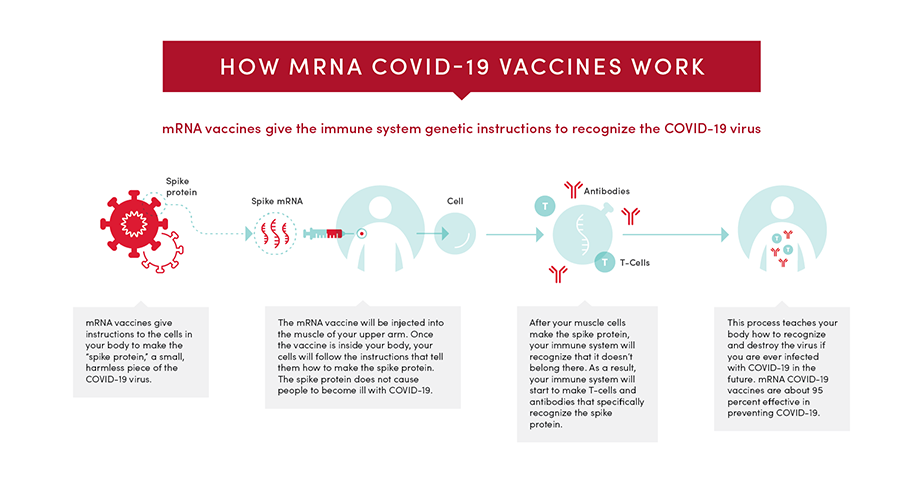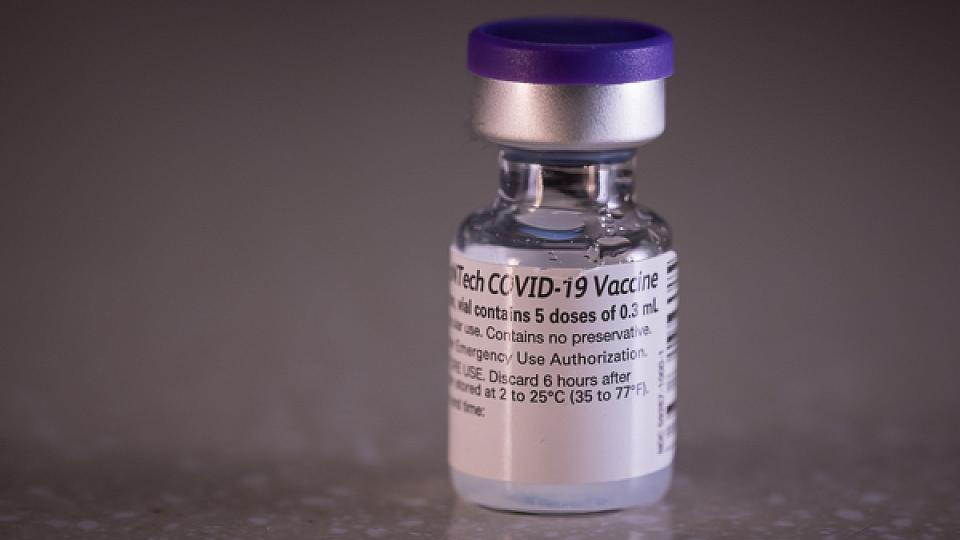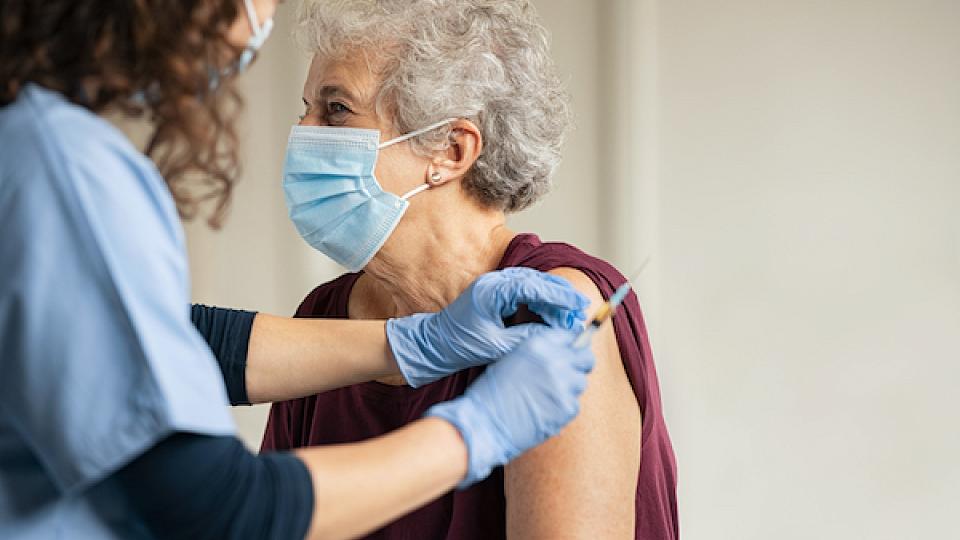Participants in both the Pfizer/BioNTech and Moderna vaccine clinical trials have reported the following side effects:
- Mild pain, swelling, or redness at the injection site where you get the vaccine
- Mild fever
- Chills
- Feeling tired
- Headache
- Muscle and joint aches
- Vomiting
- Diarrhea (seen in Pfizer/BioNTech clinical trials)
- Nausea (seen in Moderna clinical trials)
- Swollen lymph nodes in the same arm as the injection site (seen in Moderna clinical trials)
Some people who received the vaccine reported worse fevers and aches than others. Side effects were usually short-lived and able to be managed with fever-reducing medications, such as Tylenol. For people who received the Pfizer/BioNTech, Novavax, or Moderna vaccine, side effects were more common after the second dose than the first dose.
No harmful side effects have been reported in clinical trials, however, the possibility of extremely rare harmful side effects could still exist. Clinical trials for these vaccines are ongoing. More information will become available once we know more.
Allergic Reactions to Vaccines
Severe allergic reactions or anaphylaxis to vaccines are extremely uncommon. If a severe allergic reaction does occur, it typically happens within a few minutes to one hour after receiving the vaccine. However, some people have experienced non-severe allergic reactions (i.e., hives, swelling, and wheezing) within four hours after getting vaccinated.
You should not get the COVID-19 vaccine if:
- You have had a severe allergic reaction after a previous dose of the vaccine.
- You have had a severe allergic reaction to any ingredient in the vaccine.
- You are allergic to polyethylene-glycol (ingredient in both vaccines) or polysorbate (not an ingredient in either vaccine but is closely related to PEG).
People with a history of immediate allergic reactions — even if it was not severe — to other vaccines or injectable therapies should consult with their doctor before getting the COVID-19 vaccine, according to CDC recommendations.
Myocarditis & mRNA Vaccines
There have been rare reports of people—particularly male adolescents and young adults—who received the mRNA vaccines (Pfizer/BioNTech & Moderna) and experienced symptoms of myocarditis or pericarditis (heart inflammation conditions) within several days of getting their shot. This rare adverse reaction occurred more often after the second dose of vaccination. With proper treatment and care, most patients saw their symptoms improve quickly. However, it's important to keep in mind that the known risks of COVID-19 illness, such as long-term health problems, hospitalization, and even death, far outweigh the risks of having a rare adverse reaction to the vaccines.







